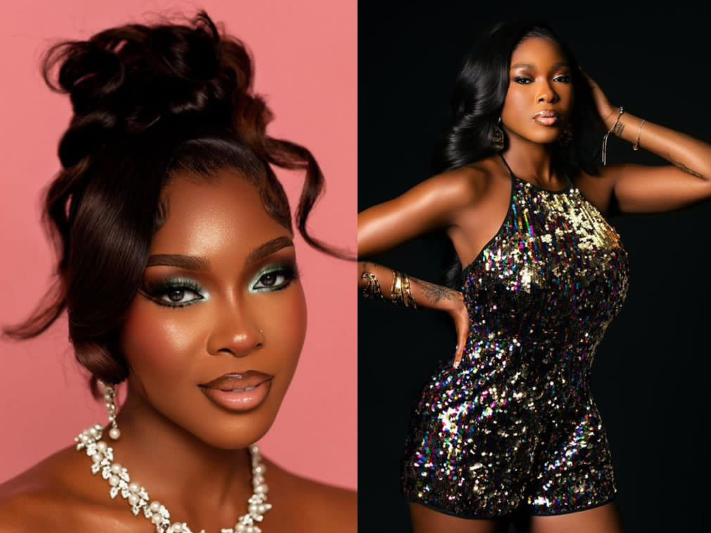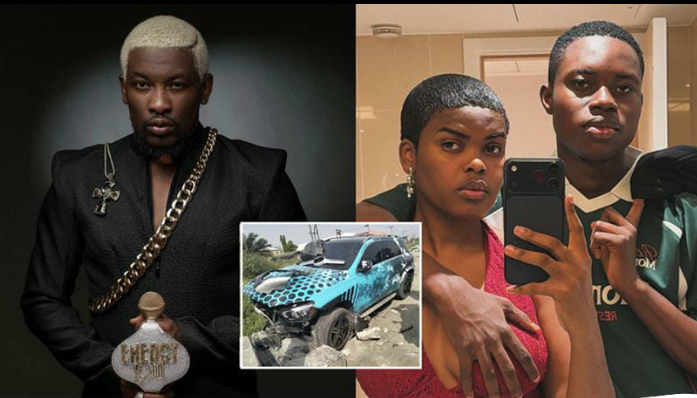
Born This Way: BBNaija Star Vee Opens Up About the Struggles of Growing Up Left-Handed

In a society where conformity often outweighs individuality, reality TV star and singer, Vee Iye, popularly known as Vee, has sparked a thoughtful conversation about what it means to grow up different — not because of race, gender, or class, but because of something as simple as being left-handed. Taking to social media, the Big Brother Naija alumna shared a glimpse into her childhood, recalling how her natural inclination to use her left hand led to unnecessary arguments and social friction. “Growing up left-handed got me into a lot of unnecessary arguments. Glad that nonsense is dying out,” she wrote, a simple yet powerful statement that has since ignited widespread discussion online.
For many Nigerians, Vee’s tweet was more than just a personal reflection — it was a trigger of collective memory. Generations of children across Africa have faced criticism, punishment, or outright shaming simply for being left-handed, a trait that, in many cultures, was once associated with bad luck, disrespect, or even evil. In classrooms, teachers would force children to write with their right hands. At home, parents and elders would reprimand them for eating, greeting, or performing traditional tasks with their left. For a child like Vee, growing up in such an environment meant constantly having to explain or defend something as natural as her choice of hand.
Vee’s revelation resonated with thousands of followers who shared similar experiences of being misunderstood or stigmatized for their handedness. The tweet, which quickly went viral, became a platform for others to open up about the subtle but lasting scars of that cultural bias. “I remember being hit on the hand every time I used my left in school,” one user commented. Another added, “I was made to re-learn how to write with my right hand. Now I struggle with both.” These responses highlight a cultural phenomenon that goes far beyond Vee’s personal story — one deeply rooted in generational beliefs and societal expectations.
In many African societies, the left hand carries deep-seated cultural symbolism. It is often considered “unclean” or “disrespectful,” particularly in traditional settings where greetings, giving, and receiving are expected to be done with the right. Religious and cultural traditions across the continent have reinforced this notion, making life uncomfortable for naturally left-handed individuals. Children like Vee were not just told to switch hands; they were taught, sometimes harshly, that using their left was wrong. The psychological toll of this conditioning often went unnoticed, but it shaped how many people saw themselves — different, deviant, or disobedient — for something entirely beyond their control.
What makes Vee’s reflection particularly striking is how such a simple statement exposes a larger cultural shift. By saying she’s “glad that nonsense is dying out,” she acknowledges the slow but steady erosion of those old stereotypes. Today, with increasing awareness and global exposure, more parents and educators are beginning to understand that being left-handed is not a flaw or rebellion but a natural variation of human biology. Science has long established that handedness is determined by the brain’s structure and function, not by will or moral standing. Left-handed people make up roughly 10% of the global population, including some of history’s greatest minds and leaders — from Leonardo da Vinci and Albert Einstein to Barack Obama and Oprah Winfrey.
For Nigerian pop culture followers, Vee’s outspokenness is nothing new. Known for her honesty and unapologetic attitude since her days on Big Brother Naija Lockdown in 2020, she has often used her platform to speak on issues that others shy away from — mental health, toxic relationships, and now, the subtle forms of cultural intolerance many grew up enduring. Her statement on left-handedness, though brief, continues that tradition of challenging societal norms and sparking meaningful dialogue about what it means to be different in a country that often rewards conformity.
Interestingly, Vee’s post comes at a time when Nigerian youth are increasingly questioning inherited customs and taboos that no longer align with modern understanding. On platforms like X (formerly Twitter), where her message was shared, users are not only discussing the experiences of left-handed individuals but also using the conversation to reflect on other outdated cultural stigmas — from mental health misconceptions to gender expectations. The new generation of Nigerians, empowered by social media and global connectivity, are slowly unlearning and reshaping traditions that once dictated behavior without question.
However, as Vee rightly implied, the change hasn’t been universal. In some rural communities and traditional institutions, left-handed children still face correction or discrimination, albeit in subtler forms. Teachers continue to encourage “proper” use of the right hand, and parents sometimes express discomfort when a child reaches for food or offers an item with their left. While these acts may appear harmless, they reinforce the idea that something is wrong with being left-handed, perpetuating a cycle of shame and self-doubt. The conversation Vee started is, therefore, not just about personal experiences — it’s a call for empathy, education, and cultural evolution.
What’s remarkable is how Vee’s candid comment has turned into a kind of social education moment, with experts and advocates chiming in to provide historical and psychological context. Some pointed out that the stigma around left-handedness was imported during colonial times, influenced by Western religious interpretations that associated the left with impurity or sin. Others argue that the bias existed long before, embedded in indigenous traditions that valued uniformity and social order. Whatever its roots, the shared consensus online is clear: the old narrative needs to end.
For many fans, Vee’s post wasn’t just about left-handedness — it was symbolic of her personality. Confident, bold, and unfiltered, she embodies a new generation of Nigerian entertainers who use their influence to promote authenticity over perfection. Her statement, brief as it was, reminded people that even something as seemingly small as which hand you use can become a site of resistance and self-expression. It’s a reminder that individuality, in all its forms, deserves to be celebrated, not corrected.
The irony is that left-handedness, once viewed as an imperfection, is now often associated with creativity and innovation. Studies suggest that left-handed people may think differently, often excelling in arts, music, and problem-solving. That perspective adds another layer of depth to Vee’s journey — a creative artist who once faced criticism for using her left hand, now thriving in a world that celebrates uniqueness. It’s almost poetic.
As her tweet continues to circulate, sparking laughter, empathy, and reflection, one thing becomes clear: conversations like this matter. They remind society how easily we can stigmatize what we don’t understand, and how much progress we’ve made in breaking free from old superstitions. Vee’s message may have been brief, but its impact ripples across generations — a simple affirmation that being yourself, however different, is never wrong.
In the end, what Vee shared wasn’t just a childhood memory; it was a quiet declaration of freedom. A message to every child still being told to switch hands, every adult still feeling self-conscious for being left-handed, and every culture still learning to embrace difference. The world is changing, and as Vee proudly declared, the “nonsense” of judging people for being left-handed is finally dying out — one honest conversation at a time.


